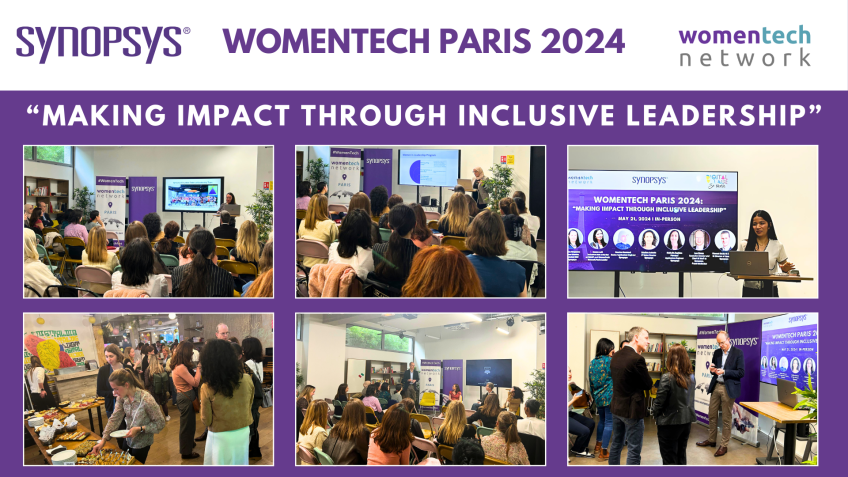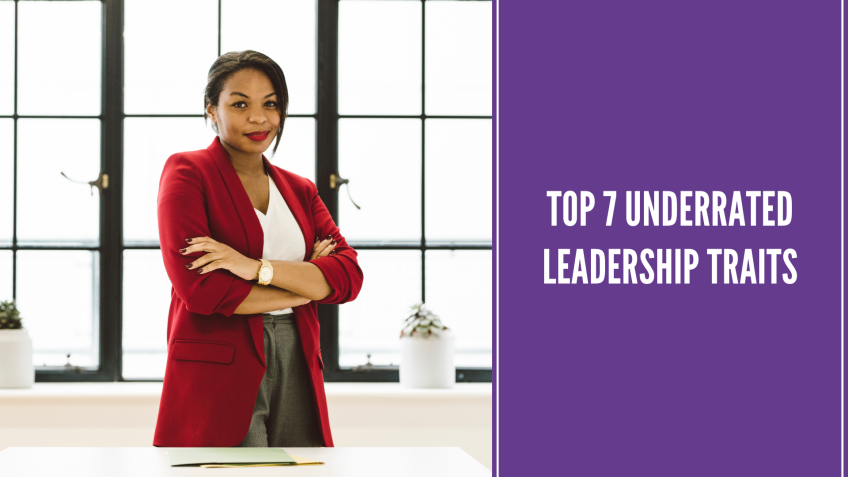Keynote
Turning Failures into Success: Stories of Tenacity, Resiliency, and Open-Mindedness
Our life journeys are often filled with challenges that test our resilience, adaptability, and determination. Overcoming these hurdles often requires more than knowledge and skills; it requires open-mindedness, resilience, self-confidence, and most importantly, the courage to act. As Amelia Earhart once said, "The most difficult thing is the decision to act, the rest is merely tenacity."
Building Resiliency in Your Personal and Professional Life
As professionals, we frequently encounter failures in our personal life, careers, and the systems we design and build. Accepting that failures are inevitable is the first step towards building resilience. Once we embrace failure as an opportunity to learn rather than a setback, we build the courage to overcome these hurdles, thereby turning failures into foundations for future success. We can leverage this elasticity to spring back, take on new challenges, and grow both personally and professionally.
Thriving in the Face of Change
Driven by the rapid evolution of technology, our work environments and tasks are subject to regular changes. It is in these changing and sometimes uncertain environments that our resiliency is truly tested. However, these trials do not define our stories; they contribute to our life journey. The key question is, how do we want our story to progress?
Recognizing career opportunities in a rapidly evolving industry, I reminisce about my own professional journey, and the guiding principles that shaped my personal and professional life. These principles - open-mindedness, resiliency, adaptability, and self-confidence continue to define the future chapters of my life.
An Open Mind and a Resilient Spirit: Key Ingredients to Success
Keeping an open mind is crucial for learning and trying new things. A small dose of fear should not deter you from embracing new challenges and experiences. In my career, I took some calculated risks, and although some decisions did not lead to immediate success, they made me a better leader and enriched my knowledge base. I would advise you all to remain in a continuous learning mode. Alongside this, it is vital to be fearless, objective, and stick to your convictions, regardless of the outcome.
When it comes to resilience and change, my personal journey is a testament to the importance of these traits. Transitioning through six different schools before high school, I learned early on how to adapt to new cultures, form new connections, and navigate various challenges. Essentially, developing resilience and adaptability. Through these experiences, I also understood that it was okay to be afraid as it pushes one to move out of their comfort zone and explore their potential.
Nurturing Self-confidence and Authenticity
One aspect that I am constantly working on is self-confidence. It is all too common to experience self-doubt or suffer from impostor syndrome. However, over the years, I've transformed this fear into my motivator, spurring me to strive harder and challenge the status quo. In line with this, it's important to remain authentic and humble. Striving to find the right balance between arrogance and humility can sometimes be misinterpreted as confidence, but arrogance without substance can be disastrous.
Finally, your voice matters. Seek out allies and sponsors who are honest and have your best interests at heart. Surround yourself with smart people who challenge you and elevate your thinking. By doing so, you grow and help them grow in return, thus keeping the cycle of knowledge and empowerment alive.
Conclusion: Write Your Story of Resiliency
In conclusion, our stories are a combination of our experiences, challenges, and how we choose to overcome them. It's up to you to decide how you want your story to progress. So, I leave you with these thoughts: What opportunities are you willing to pursue that excite you? What company aligns with your values? What job brings you joy? And, who are the people you will seek and surround yourself with?
As you ponder these questions, remember to pay it forward and share your story to inspire others. As we continue to build a strong community of female technologists, recognizing our common ground and celebrating our differences becomes crucial. So, let's tell our stories and inspire those around us to do the same.
Thank you for joining me on this journey of self-discovery and resilience. I look forward to hearing about your stories of tenacity, resiliency, and open-mindedness.
Video Transcription
Thank you. Thank you so much. You know, you know, I always believe that the most difficult thing is the decision to act, right? The rest is merely tenacity and that's a code by Amelia Earhart. So I wanted to start it off with that. It's so very true, right?The first step is always the hardest resiliency is key to our success. Failures happen, whether it's in your career, your personal life or the systems that you design and build. Once you accept that failures will happen, then you start thinking about residency plans, you build the courage to act, to overcome that hurdle, how you turn failure to become tough and build that capacity to recover quickly, how you can build, you know, the elastic city to spring back to take on new challenges is what's most important and shapes you as a person and shapes the technology that we build.
I'm really thrilled and honored to be here for this amazing event, right? I build and manage one of the largest developer platforms in the industry or one of the largest technology organizations in the world at JP Morgan Chase. We work with tremendous scale and complexity with over 50,000 technologies as my customer base. My job is not only exciting but stretches my mind in every possible way. There was never a dull moment. A lot has changed right over the last two years where we work, how we work and even what we're working on. But, but the time has done and showed us each how resilient, creative and constructive we can be individually and collectively in a changing and sometimes uncertain environment that requires a semblance of balance. Think about it. Some of us learn to juggle work meetings, childcare, elderly care, some of us became teachers and we're responsible for homeschooling. Many of us leaned into empathy to enable teams to juggle taking care of a young child by balancing meetings. I know I enjoyed getting to know some of those kids. One even did an amazing break dance performance for me. But and maybe you've discovered new talents or hobbies like cooking or writing for me.
I learned a lot about crypto and different technologies and did a lot of whiskey and tequila tasting as well. But for many others, I know this time was simply difficult for a variety of reasons. So when you think about it, it's been a journey and how you choose to navigate these times, how you reacted to challenge and uncertainty that has become part of your story, but it doesn't really define your entire story. But what it does is begs the question how do you want your story to progress? And there's no better time to think about it than now, right? We have all chosen a career in an industry that's going through tremendous growth and accelerating change. And with this comes incredible opportunity. So I thought through my session today, I thought about my story. I thought through my life journey, professionally and personally, I realize that my guiding principles and who I am fundamentally rely on the same tenants that have shaped my personal and professional life and that I'm solely responsible for defining the future chapters of my life.
So what would those chapters look like? Right. Definitely include open mindedness, resiliency, and adaptability and self-confidence. And you know, growing up in India, I was fortunate to grow up in a family where education was a priority. The two sisters grew up in a very small town where my mom was active in the local community and my father was a general manager of a printing paper factory. Most of my weekends were spent at the factory, climbing on top of Swedish made turbines. And of course, my dad made sure I was safe. It was an adventure for me. Met a lot of people learned the entire process of manufacturing paper from bamboo, a highly sustainable natural resource. I was eight years old. Right? Early on, I knew I wanted to be an engineer, a mechanical engineer, just like my dad. As I got to college, my dad strongly advised me not to pursue mechanical engineering primarily because he didn't think working in a plant or factory setup was safe for a woman or conducive for a woman. That was, it was a predominantly male dominated. Even in college, I didn't find a single woman in the mechanical engineering department.
So I decided to take some computer science classes along with thermodynamics, loved both did fairly well, but computer science was an incoming field and I said it was, I said, decided to pursue it and looking back was the best choice. I, I mean, right in many ways, I grew up in a progressive house with education, music, arts and sports were a priority. We had freedom to explore. Some of my best memories were the hikes and rainforest of Northeastern India or being chased by elephants in the Carman coast in southern India. But in many other ways, I grew up in a highly conservative and orthodox household. So when I got a job in the US, right after college with excitement, there was nervousness as well. I had my dad's support but my mom and grandparents were against it primarily because I was in my early twenties and single. The primary worry, at least what there was to me. What, what if I married an American at the time, you know, arranged marriage, marriage within your own religion. Caste and community was still the norm. To me, it was strange, their primary concern should have been the safe my safety, right? A young individual going abroad to a new country. But the concern they voiced, was that what if I married an American? I didn't let that dishearten me.
And I was fortunate that my dad was fully supported growing up, I followed lives of British Prime Minister Margaret Thatcher, as well as India's own first woman, Prime Minister Indira Gandhi. I saw how both of them rose to power, how they overcame extreme adversity in many ways.
Margaret Thatcher has influenced my thinking from a very young age and has shaped a lot of the path I've taken both in my personal and professional journey. And I knew that if I wanted to like my progression to be like Margaret Thatcher's, I had to start writing chapters of my own journey. And so that's what I did. You know, I had to keep an open mind. I had to be resilient and adaptable and I had to be confident in myself. So let's talk about open mindedness. Always keep an open mind for learning. You have to be fearless to try on new things and be objective in your thinking. A little bit of fear is always a positive thing, at least in my opinion, right? But it should not stop you from trying new things or learning new things in my professional life. I have pivoted my career a couple of times to try new things just because I felt stagnated or wasn't very excited about the product or the team I was working with. I kept an open mind as I made those changes, one proved to be a great move and the other in hindsight was not too smart of a move, hurt my career in terms of progression. But at the end both made me a better individual, a better leader.
I learned a ton learning never goes away is irrespective of the outcome. It just makes you better and brighter. Always be in a continuously learning mode. You know, it's also important to know the difference between contributing and learning in some projects. You may have ton to contribute because of the experience you may have, but you may not learn anything new but don't get me wrong, right? Contributing to solve a business problem is extremely critical but it cannot be long term. You have to be constantly learning and developing new skills. Don't limit yourself on the big or small. It's a continuous journey. We call it epic learning at JP MC. Also have the courage of your convictions. This is scary, right? I mean, especially when many of us always second guess ourselves. I came to this country alone, didn't know anyone in the area and like most immigrants, my entire life was in suit in two suitcases, but hard work making some bold choices. Keeping an open mind helped me navigate, build some great connections and friends. But also over time, I learned to get more resilient with failure. I learned from it and recovered faster and it's I agree, it's easier said than done. But we have to try. There is no other choice. Reading a lot is very critical and share your learning with others. Power comes from sharing, information, sharing leads to building those connections, building collaboration and gets a collective amalgam of ideas leading to innovation, right? And you cannot do this in isolation.
Be resilient and adapting to changes will be definitely a key chapter in my story, right? Being resilient is very, very important for me. I was in six different schools before I graduated from high school. My parents moved around a lot. Perhaps that experience made me resilient and taught me the ability to adapt, make new friends, learn new cultures and languages in my professional life. I've built and currently building a highly resilient and robust application platform failures will happen. That's a guarantee.
But how does your plot from her handle failure? Does it fail over? Does it fail gracefully? Does it recover fast or is it just dead in the water? As I mentioned, one of my career choices didn't pan out as I had hoped, but it made me more resilience in the sense that I now know what type of manager I would never work for. And I think that was an important lesson for me on the personal, on my personal front, I was an avid hiker and was training for half marathon when a severe bout of Hashimotos completely shut my body down, but I could barely move. It took me three months to get back to small box. And I also realized that my body is not going to tolerate 10 mile runs anymore. That was hard to accept. But then I realized that mental strength was as important as physical strength. It took some time. But I've now built a mental and physical strength for long strenuous hikes. Now, whether it's personally or professionally resilience and adaptability will carry you through, but it's OK to be afraid, right? Move out of your comfort zone, push yourself to do scary things. There are two outcomes either you find your limit, are you fine, you can go places. So as Laurie Beer, our global cio always says be comfortable being uncomfortable, know that you define your future, right? This is the greatest time for opportunity in every field, especially in technology.
There is a gigantic shift in evolution happening. It's really unique. I'm going to take advantage of that. I want to be part of that and not just that I want to contribute to that shift. And I'm sure many of you feel that way as well. But like, you know, Margaret Thatcher once said you have to fight the battle more than once to win right now. Let's talk about self confidence. This is something I'm constantly working on. Self doubt. Always kicks in. It took me a long time to realize I could be a role model that I could come to elite conferences like women in tech and contribute. An imposter syndrome is very real for me. And on many folks, I speak to many senior leaders that's real for them too. But for me, over a period of time, I've turned that into my weapon. A bit of fear. A bit of feeling like an impostor enables me to strive harder and never feel satisfied with the status quo. There was a time when it became a detriment as would keep me from doing unfamiliar things. But the more I have left my comfort zone, the more confident I have become and be yourself, right? Authenticity goes a long way. Don't change to who you think you should be. You know, many I have seen say things but actions show differently. You lose credibility, you lose respect, be honest about what you know, and what you don't know, but be willing to learn humility goes a long way.
But it sometimes you have to find the right balance between arrogance and humility. As many times a former is incorrectly perceived as confidence, arrogance without substance is a disastrous combination. Let me give you another example. Right early in my career, there were many times when I would walk into a meeting and there would be open chairs around the table and yet I chose to sit on a chair which is far away from the table. I'm sure many of you have gone through the same or felt the same, but I don't know about you, but I did this because I just thought there were folks who had more important things to say than me. I was holding myself back and we hold ourselves back. Right. Our voice matters thing is seek out allies and sponsors, allies who are honest, have your best interest in mind. Many confuse allies with admirers, admirers won't tell you when you're making a mistake and won't be radically honest with you. Allies will be honest, especially when things are not going well, work for someone who's authentic and honest and want to work with you to build you as a leader and challenge you to be the best. The sign of the best leader is when they create other leaders and not followers, find the smartest people and surround yourself with them. This way, you're constantly learning and you're constantly challenged to do your best. It elevates your thinking.
So in closing, my story is one about, you know, open mindedness, resiliency and adaptability and self-confidence. My story has brought me to JP Morgan Chase where I love my job. And I'm very proud to be part of a company that not only enables me to lead grow and have an impact of unparalleled size and scale, but a company that has unrelenting focus on gender equity, investing in training and investment in the future. Not only ours but the next generations. So when you think about the direction that your story is going and you incorporate the opportunities ahead of you think through this, right? What opportunities will you pursue? That makes you excited. What company aligns to your values and provide you the opportunity to grow? What job are you looking forward to starting your day and brings you joy, who are the people that you will seek and surround yourself with? And what will you do your personal commitment to get there?
And as you ask yourself these questions, I have one additional, ask paid forward, tell your story and encourage others to do the same. Creating, you know, a strong community of female technologists is recognizing our common ground and also celebrating our differences, not just in technology, but also in the workplace, but in the global community. So tell your story and inspire those around you. Thank you very much for having me.





